
The future of Europe is being defined now
Blog by Josep Borrell
Last Tuesday we had an important debate in the European Parliament about Russia’s aggression against Ukraine and the European response. At this occasion, I set out the provisional lessons that we can draw from the tragic events we are living for EU foreign policy and the security of our continent.
To open this debate, Ukrainian President Volodymyr Zelensky made a powerful speech via VTC on what it at stake – not just for Ukraine but for Europe as a whole. Council President Charles Michel and EC President Ursula Von der Leyen also introduced this important discussion. For my part, as I pointed out a few days ago, I stressed that the Ukraine war marks the birth of a geopolitical Europe. It is the moment we became fully aware of the challenges we face and our responsibilities. For the first time since the end of the Second World War, one European country is invading another, and that country has nuclear weapons.
It makes me sick to think of the analogy with the events that marked the beginning of the Second World War. What is happening today, reminds me also of the bad memories of Budapest in 1956. I was only nine years old, but I remember listening all day to the radio. It reminds me also of 1968, the Prague Spring. I was an officer in the Spanish army then. In the last two cases, we did nothing because we couldn’t do anything. Today, that is not the case.
The return of tragedy on the European soil
With the Ukraine war, we witness the return of tragedy on European soil. This return, instead of frightening us, should galvanise us. During the past decades, we have often had the impression that the European project was losing its appeal because the memory of the war was fading on our continent. That is over now. Ukraine reminds us that tragedy never disappears from human societies.
In recent years, we have often discussed defence issues and begun to set up joint military programmes. The European Parliament has voted to set up a European Defence Fund, and the member states have created the European Peace Facility that we are mobilising to provide weapons to Ukraine. In the coming weeks, the European Council will adopt the Strategic Compass. With the invasion of Ukraine by Russia, we must amplify our reflection, adjust our means and anticipate our responses. It is no longer a luxury, it’s an urgent necessity.
“It’s clear that our deterrence capacity has not been strong enough to prevent Putin’s aggression. We need to think about our instruments of coercion and retaliation, to deter reckless adversaries.”
To make peace, we need to be at least two, but to make war, it is enough to be one. This is exactly what Putin is telling us. It’s clear that our deterrence capacity has not been strong enough to prevent Putin’s aggression. We need to think about our instruments of coercion and retaliation, to deter reckless adversaries. Since this aggression started, we have reacted in a way that Putin didn’t expect. And we are showing him that we will never sacrifice our freedom, and the freedom of others, on the altar of our well-being and prosperity.
As President of the European Parliament in 2007, I had the opportunity to tell Putin, eye to eye, in the aftermath of the killing of a journalist, Anna Politkovskaya, that “we are not going to change human rights because of your gas”. And this is the moment to repeat that we will not abandon the defence of human rights and freedom because we are dependent on Russian gas.
“We will not abandon the defence of human rights and freedom because we are dependent on Russian gas.”
This tremendous conflict can only end positively with a return by Russia to basic international norms and principles. To achieve this goal, we started immediately working with our international partners, to cut off Russia from the financial system. Now half of the reserves of the Central Bank of Russia are out of their control. A few days ago, it was regarded as impossible and now we have done it.
We agreed also within hours, on using the European Peace Facility to bring financial support and coordinate member states efforts to deliver weapons to the Ukrainian army to help defend the country against the Russian aggression. Another taboo has fallen. We have retaliation capacities. We have mobilised these capacities and we have to continue doing so, pooling the capacities of the member states and the EU institutions.
Condemnation of Russia’s aggression by the UN General Assembly: an historic outcome
In the international arena, no one can put the aggressor and the aggressed on the same footing when a powerful aggressor unjustifiably attacks a much weaker neighbour. On Wednesday, an overwhelming majority of 141 countries at the UN General Assembly voted to support Ukraine’s rights and condemn Russia’s actions as a clear violation of the UN Charter and international law, with only 5 voting against and 35 abstaining. The EU had worked hard to achieve this historic outcome. It shows just how much Russia’s leadership has isolated their country. And we fully agree with Secretary General Guterres that the message is clear: there must be an end to the violence now and we need to open the door to diplomacy.
When I say that Europe has to become a hard power, people think only of military power. However, the capacity to impose others to change their behaviour is not only dependant on weapons. With the measures the EU has taken, we have shown exactly that. Taking measures like we did, do not mobilise missiles, but have a far-reaching effects on a country’s solvency. They prevent Russia from fuelling its war with the money we pay for its gas. Russia’s government start feeling the consequences in terms of inflation and the fall of the Russian currency. These unprecedented financial measures could trigger a Russian default, which will have consequences for the global financial system. We should not underestimate the importance of what we have decided and what could follow.
“We have not declared war on anyone and are ready to mobilise all our diplomatic resources to find a negotiated solution to the conflict. Sanctions are necessary, unavoidable, but in addition, we need to find solutions, starting with a ceasefire.”
However, negotiation and dialogue stay at the heart of what the European Union is. We have not declared war on anyone and are ready to mobilise all our diplomatic resources to find a negotiated solution to the conflict. Sanctions are necessary, unavoidable, but in addition, we need to find solutions, starting with a ceasefire.
Put an end to our dependence on Russian gas
The second issue that has been discussed at length in the European Parliament is our dependence on gas. We spend 700 millions euros per day for gas, and oil, and coal imports from Russia. Many of the speakers have said that we have to reduce this dependence. However, I have been listening to the same kind of discourse for the last 20 years, and this dependence has been increasing during that time. I have been a parliamentarian for many years, even President of the European Parliament, and I understand the enthusiasm that the European Parliament has shown last Tuesday. But now we have to act. We need to put our actions in accordance with our words. We have to increase renewables and build green hydrogen production capacities. We have a tremendous work to do and we need to remain committed to it.
“Now we need to put our actions in accordance with our words. We have to increase renewables and build green hydrogen production capacities. We have a tremendous work to do and we need to remain committed to it.”
These are, I think, the most important lessons we have to draw from these tragic circumstances. We can no longer trust that appealing to the rule of law and developing trade relations will turn the world into a peaceful place where everyone will evolve towards representative democracy. The forces of evil, the forces that strive to use physical violence to solve conflicts, are still alive. We have to demonstrate a much more powerful, more consistent and more united capacity to deter them. We have undoubtedly surprised Putin with our ability to react quickly and unitedly, but we must continue on this path.
We have to become a hard power
We have to become a hard power. I know that the word may scare some people. But hard power, I insist, is not just talking about military. Hard power is having the power to coerce and we have done it. We have now to be prepared for the consequences. We have to be prepared to resist. We have to be prepared to act, in the long term, with a clear understanding of what the challenges and our capacities are.
“We need to put more defence and security in our mind-set, and stop theological discussions about strategic autonomy. We can call it any way we want, but we have to take our security in our own hands.”
We need to put more defence and security in our mind-set, and stop theological discussions about strategic autonomy. We can call it any way we want, but we have to take our security in our own hands. It has nothing to do with weakening the transatlantic alliances, which, by the way, is stronger than ever: in the current crisis, our transatlantic unity has been 100%.
This is the moment for the European Union to discuss what it wants to be. To face the challenges of the future, we have a lot of things to review. About our procedures, our methods, putting more attention on our capacity to act than on internal discussions. The pandemic pushed us down the path of coming closer together, especially with Next Generation EU. The current tragic moment must spur us to go further on this path to protect the lives, security and prosperity of all. That’s the real challenge we have to face in the next weeks and months. In that regard, the Conference on the Future of Europe can play an important role.
MOST READ
SEE ALSO
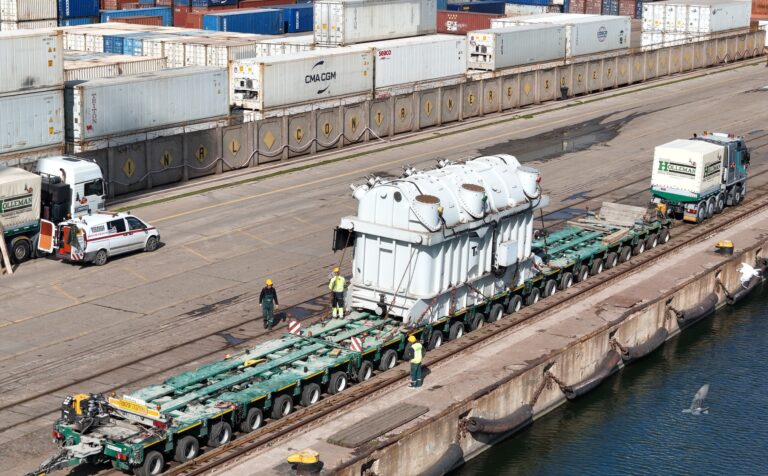
EU Civil Protection Mechanism delivers powerful transformer to Ukraine
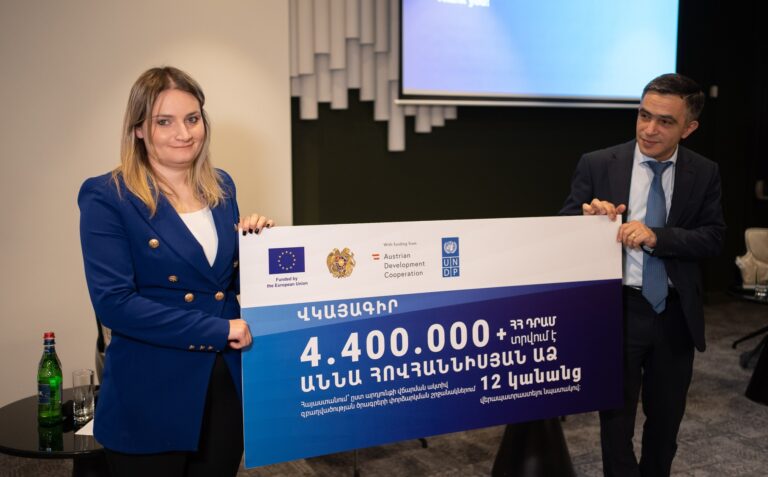
EU supports project creating employment opportunities in Armenia
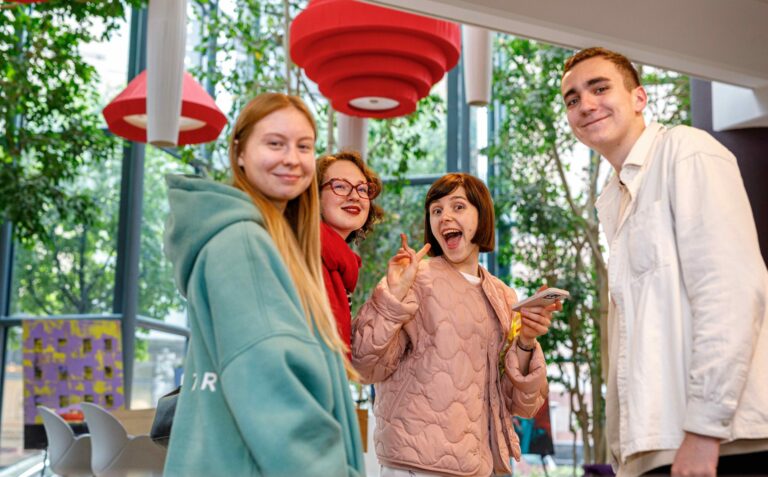
Voice Your Vision: Young European Ambassadors take part in European Forum of Young Leaders in Warsaw
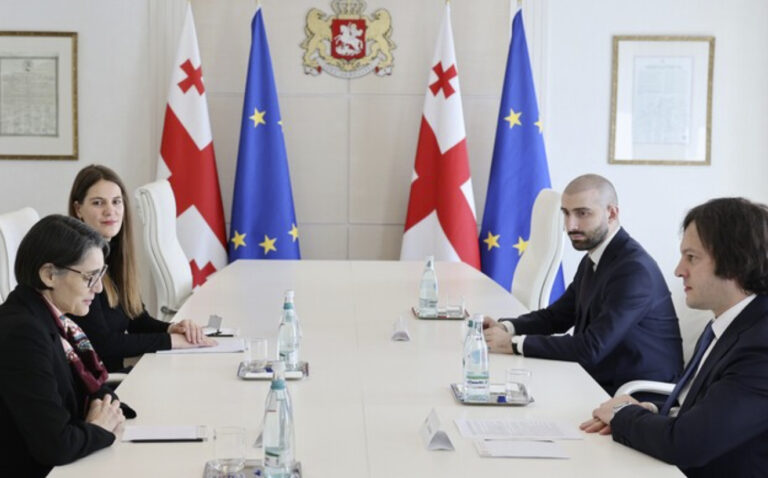
Recently appointed Head of EU Monitoring Mission meets with Georgian Prime Minister
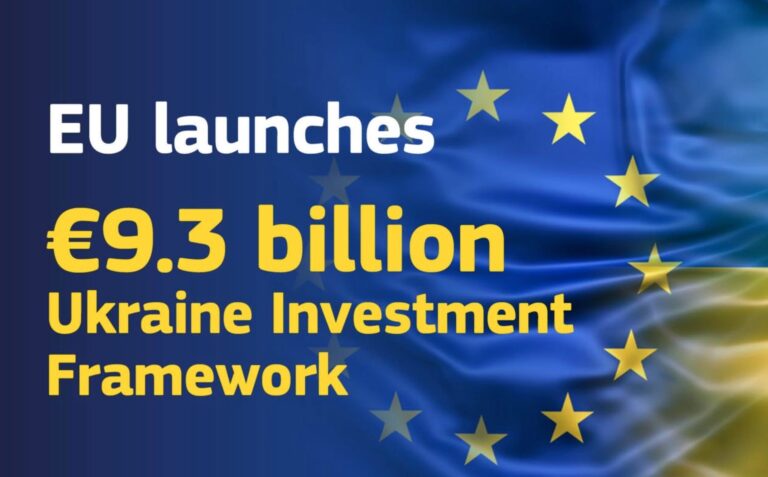
Investments for recovery: EU sets up Investment Framework under its Ukraine Facility
More campaign pages:
Interested in the latest news and opportunities?
This website is managed by the EU-funded Regional Communication Programme for the Eastern Neighbourhood ('EU NEIGHBOURS east’), which complements and supports the communication of the Delegations of the European Union in the Eastern partner countries, and works under the guidance of the European Commission’s Directorate-General for Neighbourhood Policy and Enlargement Negotiations, and the European External Action Service. EU NEIGHBOURS east is implemented by a GOPA PACE-led consortium. It is part of the larger Neighbourhood Communication Programme (2020-2024) for the EU's Eastern and Southern Neighbourhood, which also includes 'EU NEIGHBOURS south’ project that runs the EU Neighbours portal.

The information on this site is subject to a Disclaimer and Protection of personal data. © European Union,







